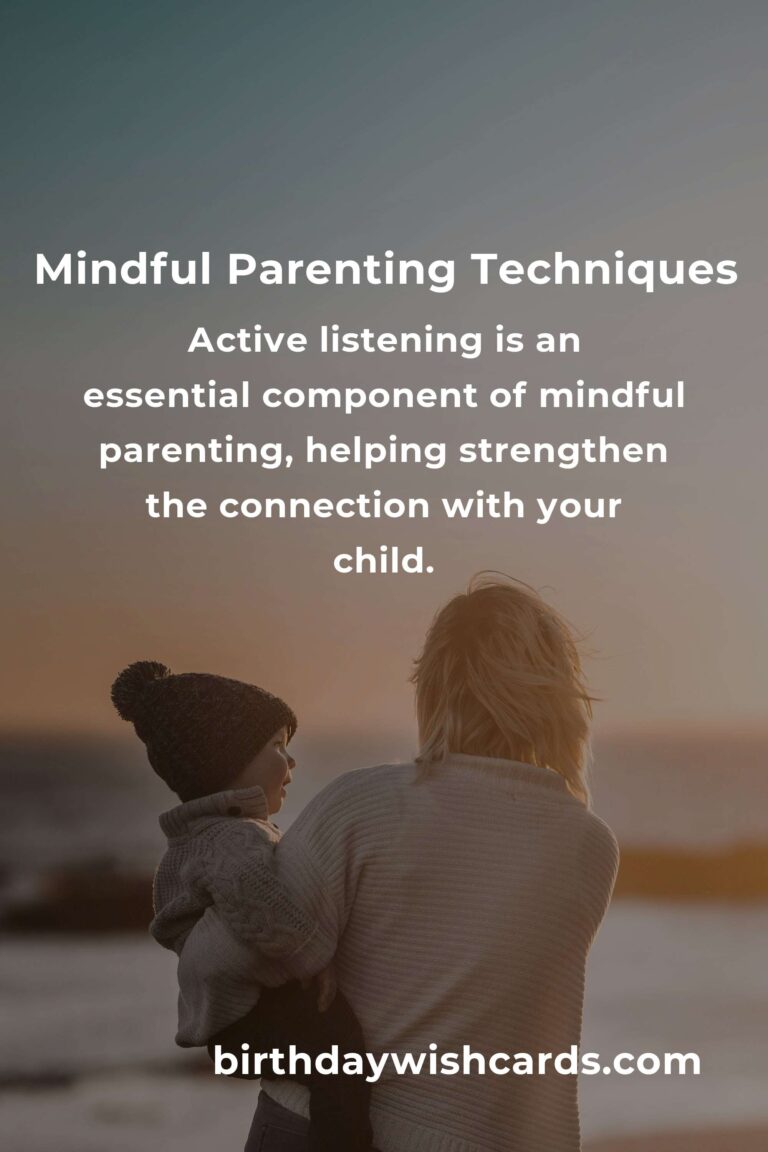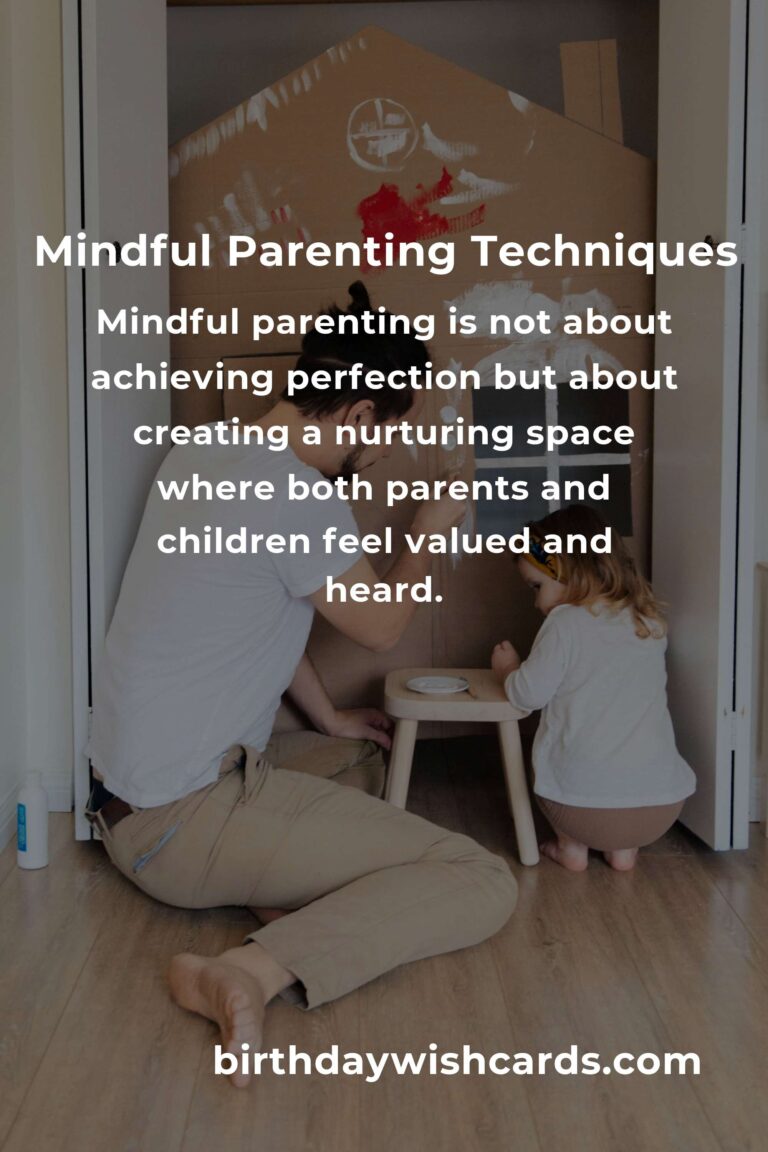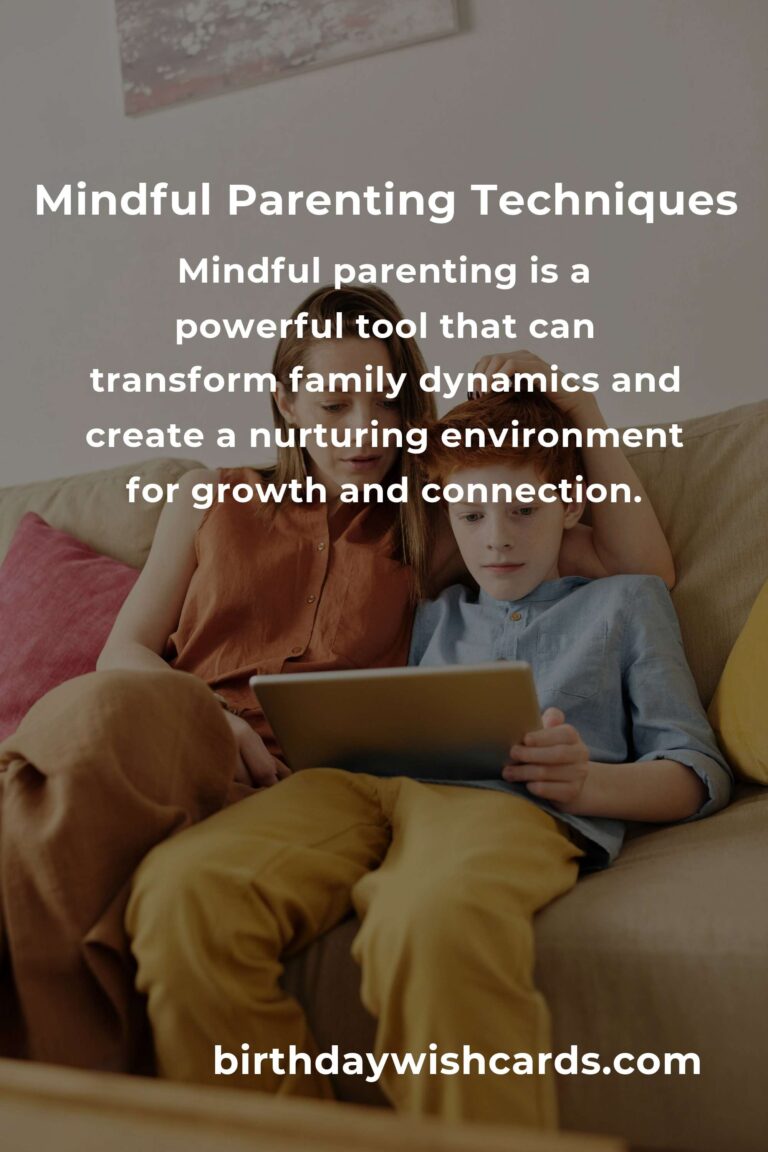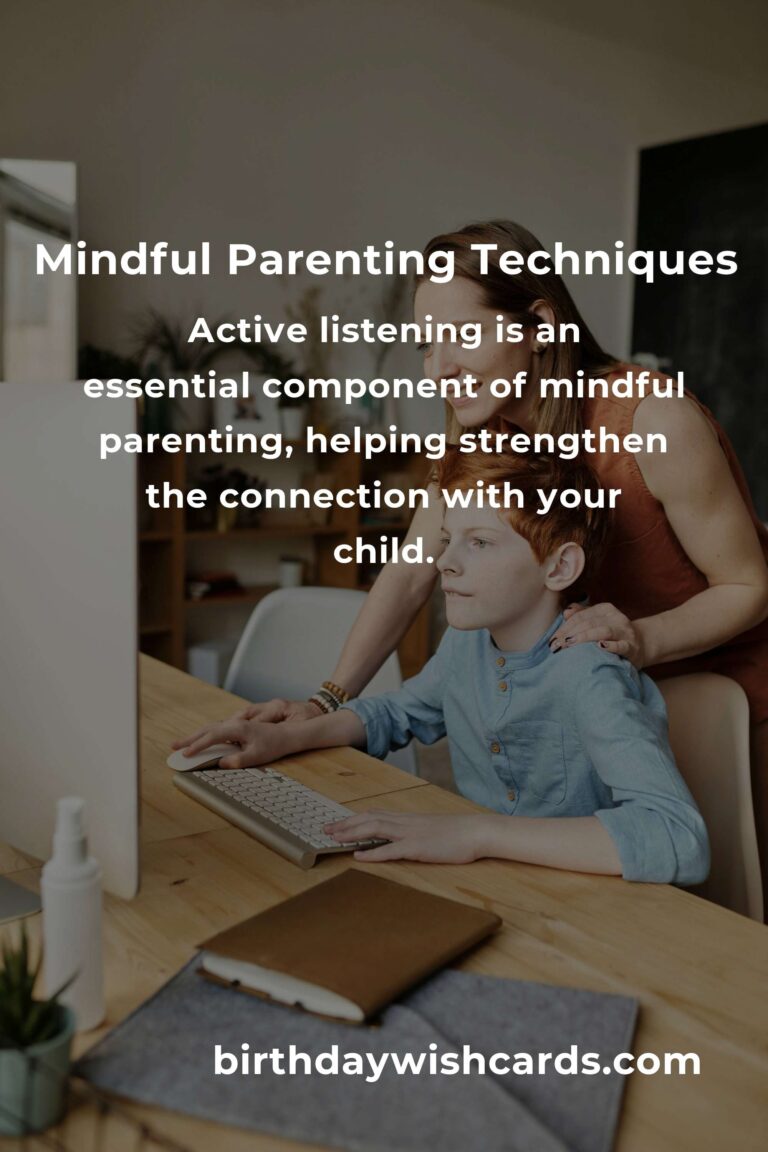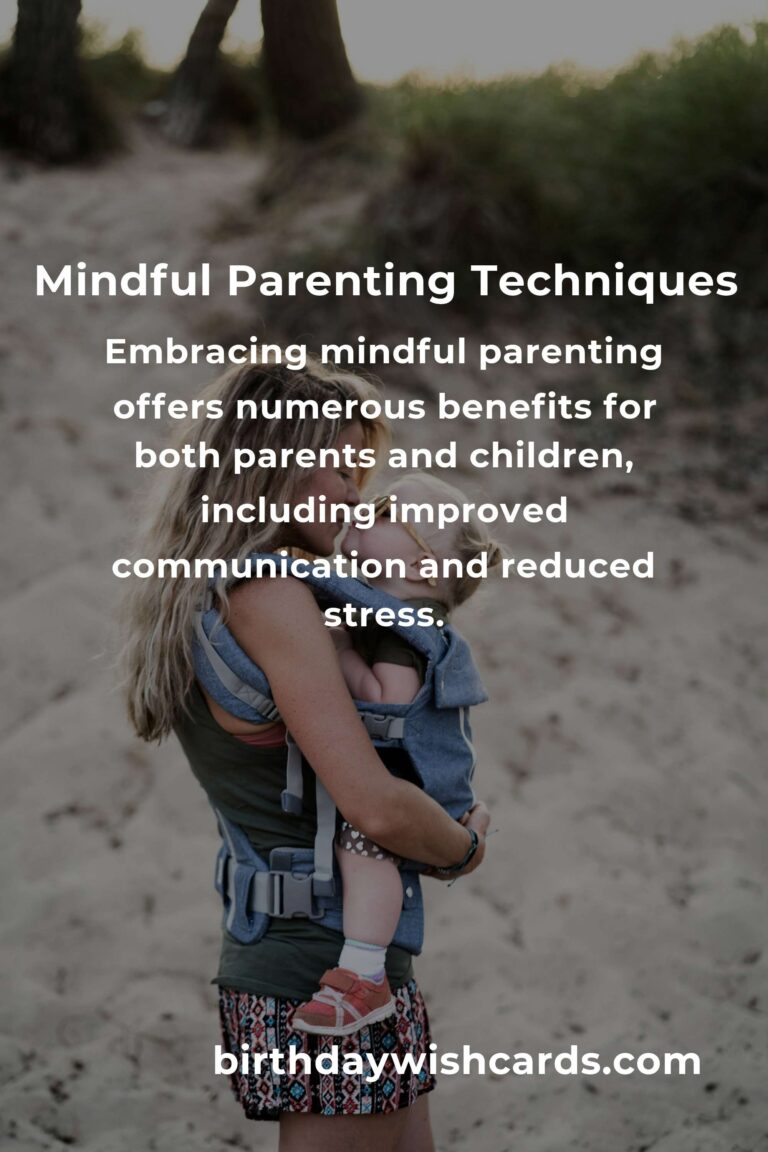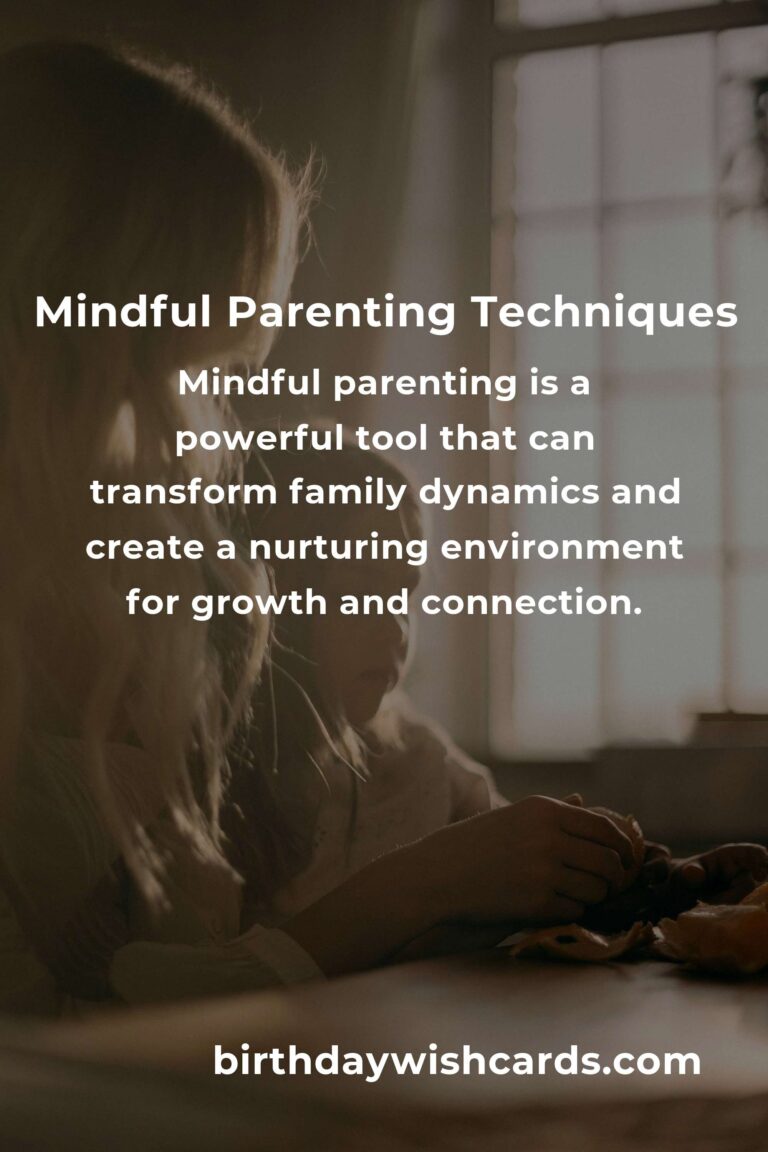
In today’s fast-paced world, parenting can often feel overwhelming and stressful. The constant demands of work, social commitments, and technology can create barriers between parents and children. However, adopting a mindful approach to parenting can bridge these gaps and foster deeper connections within the family unit.
Understanding Mindful Parenting
Mindful parenting involves being fully present and engaged with your children, cultivating an awareness of the present moment without judgment. This approach encourages parents to listen actively, respond with empathy, and nurture a supportive environment for their children to thrive.
Mindfulness in parenting is not about achieving perfection but about creating a nurturing space where both parents and children feel valued and heard. It is about embracing the imperfections and learning from them together.
Benefits of Mindful Parenting
Embracing mindful parenting offers numerous benefits for both parents and children:
- Improved Communication: Mindful parenting fosters open and honest communication, helping children feel understood and supported.
- Reduced Stress: By focusing on the present moment, parents can reduce stress and create a calm environment conducive to positive interactions.
- Stronger Connections: Being present and attentive strengthens the emotional bond between parents and children, promoting a sense of security and trust.
- Better Emotional Regulation: Mindfulness helps parents and children manage emotions more effectively, leading to healthier relationships.
Practical Tips for Practicing Mindful Parenting
Here are some practical tips to integrate mindfulness into your parenting routine:
1. Practice Active Listening
Active listening is an essential component of mindful parenting. Give your full attention to your child when they speak, and engage with their thoughts and feelings without interruption. This practice not only shows respect but also strengthens your connection.
2. Be Present
Incorporate short mindfulness practices into your daily routine to stay grounded. Simple activities like deep breathing exercises or mindful walking can help you stay present and focused.
3. Cultivate Empathy
Empathy is crucial in understanding your child’s perspective. Practice putting yourself in their shoes to understand their emotions and reactions better.
4. Set Realistic Expectations
Mindful parenting is not about being perfect. Set realistic expectations for yourself and your children, and embrace the learning process with patience and understanding.
5. Create a Mindful Environment
Designate a space in your home for mindfulness activities, where family members can retreat to practice meditation, yoga, or other calming exercises.
Challenges in Mindful Parenting
While the benefits of mindful parenting are numerous, parents may also face challenges in implementing this approach:
- Time Constraints: Balancing work, household responsibilities, and mindful parenting can be challenging. It’s important to prioritize and allocate time for meaningful interactions with your children.
- Emotional Triggers: Parents may find it difficult to remain calm and present when faced with emotional triggers. Recognizing these triggers and developing coping strategies can help mitigate their effects.
- Consistency: Consistency is key in mindful parenting. Developing a routine and sticking to it can reinforce mindfulness practices within the family.
Conclusion
Mindful parenting is a powerful tool that can transform family dynamics and create a nurturing environment for growth and connection. By being present, empathetic, and open-minded, parents can foster a supportive relationship with their children, paving the way for a more harmonious family life.
Embrace the journey of mindful parenting with patience and compassion, and witness the profound impact it can have on your family’s well-being.
Mindful parenting involves being fully present and engaged with your children, cultivating an awareness of the present moment without judgment. Embracing mindful parenting offers numerous benefits for both parents and children, including improved communication and reduced stress. Active listening is an essential component of mindful parenting, helping strengthen the connection with your child. Mindful parenting is not about achieving perfection but about creating a nurturing space where both parents and children feel valued and heard. Mindful parenting is a powerful tool that can transform family dynamics and create a nurturing environment for growth and connection.
#MindfulParenting #FamilyConnections #ParentingTips #Mindfulness


